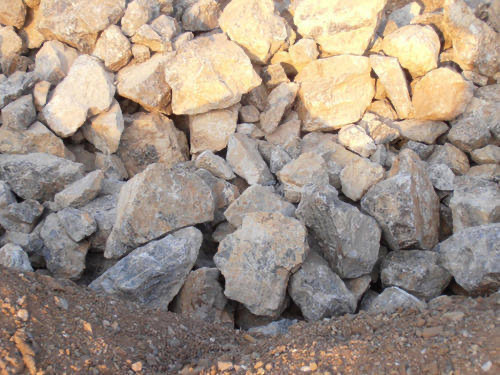
Copyright infringement not intended
Context
A groundbreaking discovery made by Norge Mining, a government organization in Norway.
Details
- Norge Mining in Norway makes groundbreaking discoveries of extensive phosphate deposits.
- Phosphate rocks can be utilized to power electric vehicles.
Phosphate Deposits in Norway
- Norge Mining estimates up to 70 billion tonnes of phosphorus reserves in Norway.
- Sufficient to meet electric power demand for the next half-century.
- China and Egypt also have substantial reserves of 3.2 billion and 2.8 billion tonnes, respectively (according to USGS).
Phosphorus as an Exhaustible Resource
- Phosphorus is predominantly consumed by the agriculture sector for fertilizer production.
- Limited availability for other industries.
- Over reliance on phosphorus for farming raises concerns for alternative sectors.
- Potential hindrance to the growth of specific crops.
Environmental Concerns with Phosphate Fertilizers:
- Runoff from phosphate fertilizers contributes to algae blooms in rivers.
- Algae blooms pose a threat to freshwater ecosystems.
Role of Phosphorus in Various Industries
- Phosphorus is crucial in the production of solar panels, computer chips, and lithium-iron phosphate batteries.
- Global economy is heavily dependent on 50 million tonnes of phosphorus annually.
- Extraction and refinement processes raise concerns about pollution.
Norge Mining's Commitment to Environmental Mitigation
- Norge Mining pledges to employ carbon capture technology in phosphorus extraction.
- Aims to mitigate carbon emissions associated with the process.
Valuable Materials Found in Phosphate Deposits
- Phosphate deposits in Norway also contain vanadium and titanium.
- Vanadium and titanium are classified as critical raw materials by the EU due to limited availability.

About Norway
- Norway is a Nordic country located in Northern Europe on the western part of the Scandinavian Peninsula.
- It shares borders with Sweden, Finland, and Russia, and has coastlines along the North Atlantic Ocean and the Barents Sea.
- Known for its stunning fjords, mountains, and rugged coastline, Norway offers diverse natural landscapes.
Political and Administrative Structure
- Norway is a constitutional monarchy with a parliamentary system of government.
- The King of Norway serves as the ceremonial head of state, while the Prime Minister is the head of government.
- The country is divided into 11 administrative regions, known as counties, which are further divided into municipalities.
Economy and Industries
- Norway has a mixed economy with a combination of free market activity and strong government intervention.
- It is known for its wealth derived from natural resources, particularly oil and gas.
- Other important sectors include shipping, aquaculture, hydropower, renewable energy, and technology.
- Norway's economy is characterized by a high standard of living, low unemployment rates, and a strong welfare system.
Natural Resources
- Norway is rich in natural resources, including oil, gas, minerals, fish, forests, and hydropower.
- The discovery of significant oil and gas reserves in the North Sea in the 1960s has greatly contributed to Norway's economic growth.
Renewable Energy and Environmental Stewardship
- Norway is a global leader in renewable energy production, particularly hydropower.
- The country has an abundance of rivers and waterfalls, which are harnessed to generate clean and sustainable electricity.
- Norway has also made commitments to reduce greenhouse gas emissions and combat climate change.
Education and Innovation
- Norway places a strong emphasis on education and has a well-developed educational system.
- The country has several renowned universities and research institutions known for their contributions to various fields.
- Innovation and technology play a vital role in Norway's economic development, with a focus on sectors like renewable energy, biotechnology, and maritime industries.
Social Welfare and Quality of Life
- Norway consistently ranks among the countries with the highest quality of life globally.
- The country has a comprehensive social welfare system that provides universal healthcare, education, and social security benefits to its citizens.
- Norway also boasts low crime rates, a high level of gender equality, and a strong emphasis on work-life balance.
Cultural Heritage and Tourism
- Norway has a rich cultural heritage, with deep-rooted traditions, folklore, and historical landmarks.
- The country is known for its Viking history, Sami indigenous culture, and distinctive architectural styles.
- Tourism is a significant industry in Norway, attracting visitors with its natural beauty, outdoor activities, and cultural experiences.
|
PRACTICE QUESTION
Q) Consider the following statements regarding phosphate deposits:
- Sedimentary marine phosphorite deposits are typically found in cold, deep marine environments.
- Phosphate deposits are primarily formed through the accumulation of volcanic ash.
Select the correct statements using the code below:
(a)1 only
(b)2 only
(c) Both 1 and 2
(d) Neither 1 nor 2
Answer: D
|

https://economictimes.indiatimes.com/news/new-updates/norways-vast-phosphate-deposits-offer-hope-for-sustainable-electric-cars/articleshow/101747119.cms




